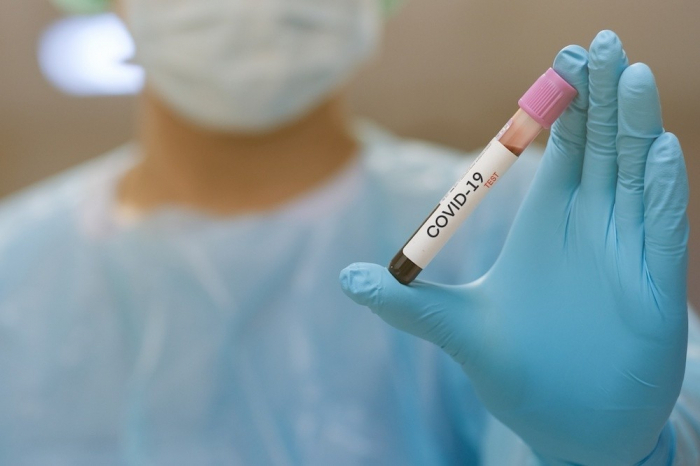We now have the best answer yet to a crucial, lingering question about COVID-19: how long immunity lasts.
New research suggests that recovered coronavirus patients likely have a robust immune memory that persists for at least eight months.
This memory relies on more than just antibodies; it also involves white blood cells known as T cells and B cells that have impressive powers of recollection.
Combined, these layers of protection enable the immune system to recognise and re-attack the coronavirus should it ever invade again, thereby preventing another infection.
To assess how long immunity to the virus lasts across these various layers of the immune system, scientists measured how many and what types of immune cells recovered coronavirus patients had months after they got sick.
Their research, though not yet peer-reviewed, offers hope that those who've already gotten infected likely won't be ill again for quite some time.
"Most people are making most parts of the immune response to this virus, and those parts are still around six to eight months later," Shane Crotty, a virologist at La Jolla Institute for Immunology in California and a co-author of the study, told Business Insider. "That looks like generally good news for having protective immunity."
While antibodies wane, T cells and B cells persist
Some research has suggested that coronavirus antibodies blood proteins that protect the body from subsequent infection fade within a few months.
But concerns about those findings can discount the role of killer T cells, which identify and destroy infected cells, as well as helper T cells that inform B cells about how to craft new antibodies.
"All of those elements are designed to work together: If in any given person one's not so great, the other arms of the immune system can compensate. So it makes sense to measure everything," Crotty said.
So his group measured both types of T cells, as well as B cells and antibodies, in blood samples from 185 people who'd recovered from COVID-19.
Nearly 40 of the participants gave blood multiple times, some more than six months after their illness. This enabled the researchers to assess how patients' immune responses changed over time.
Their results showed that patients' levels of coronavirus-specific T cells declined slightly between four and six months, then held steady after that. The researchers think it's likely that lT cells and antibodies stay consistent after that six-month mark, since that's typical of other viruses.
"It takes one to two weeks for antibodies and T cell responses to develop after an infection. Those then increase and peak," Alessandro Sette, an immunologist at La Jolla and Crotty's coauthor, told Business Insider. "Between four and six months they go down, and then tend to plateau out around six months.
"What you see at six to eight months is what you get in terms of immune response, so that's when you want to look for any indication whether you have developed a memory or not."
The study results also indicated that patients' B cell levels increased between the one-month and six-month marks. That's especially good, Sette explained, since B cells are the source of future antibodies.
"Once the initial viral invasion is gone, B cells will stop fighting, stop making antibodies," he said. "But they're still there if the attack resumes: If you have an expanding army of B cells circulating in the body, that would regenerate a antibody response."
Antibodies, however, declined measurably by the six-month mark, according to the study. But Crotty said that decline is "quite reasonable for any infection" and not on its own a reason to be concerned.
Coronavirus-targeting T cells could last for years
Sette and Crotty could only look at recovered coronavirus patients eight months post-infection, since the pandemic began about a year ago. But they think the slow rate of decline in patients' T cell and B cell counts means those cells will last far longer than the time period analysed in the study.
"The immune responses are following the expected playbook, and they're stable over at least eight months," Sette said, adding that "the trajectory doesn't indicate they're going to crash at eight months and one day."
White blood cells developed in response to other viruses can stick around for years. T cells specific to smallpox, for example, take about 10 years to disappear after an infection, while B cells for that virus stick around for 60 years.
T cells specific to SARS, another coronavirus that shares 80 percent of its genetic code with this new one, also seem to stick around long-term.
A July study looked for T cells in blood samples from 23 people who survived SARS. Sure enough, those survivors still had SARS-specific memory T cells 17 years after getting sick.
A small number of patients had 'weak immune memory'
Crotty's study found that about 90 percent of people develop robust immunity to the coronavirus undergirded by antibodies, T cells, and B cells. But not everyone developed all three immune elements to the same degree, and a small subsection of participants developed only some, or none, of them.
Those patients seem to have "quite weak immune memory," Crotty said, so could be susceptible to reinfection relatively quickly.
"You really want to have the whole orchestra of the immune system coming together to defeat the virus," Sette said.
The reason for this person-to-person variation isn't clear, but the study authors found that patients who fared better during their bout of COVID-19 had multiple types immune cells working for them. Those who fared poorly had one or less.
But until scientists have more time to study the virus, Sette and Crotty said, there won't be a way to predict how long a given person's coronavirus immunity will last after they're infected.
"There's just no way to do quick blood test to say you're going to have immune memory for 10 years," Crotty said. "So we'll just have to wait and see."
Business Insider
More about: #COVID-19
















































